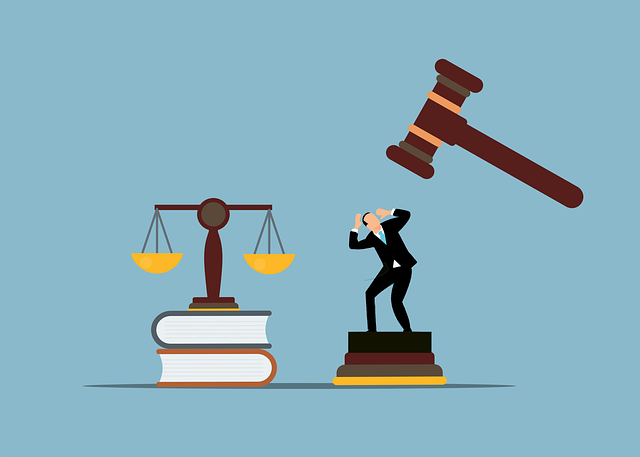Recent high-profile criminal law cases, particularly involving tech, have prompted significant societal shifts, influencing legislation and strategies across sectors. Jurisdictions worldwide have updated their Penal Codes to adopt a more rehabilitative approach, reducing mass incarceration, addressing disparities, and integrating mental health treatment. Technology has revolutionized criminal justice systems with advanced tools like surveillance software, DNA analysis, and data analytics, enhancing accuracy and efficiency while raising ethical considerations around privacy and data protection. Protecting accused individuals' rights remains paramount, with global trends emphasizing transparency in law enforcement and the ongoing adaptation of criminal law to address technological advancements.
Stay informed with the latest developments in criminal law. Our comprehensive article delves into recent high-profile cases and their far-reaching impacts on legal systems, exploring how they shape justice. We also analyze significant changes in penal codes worldwide, uncovering progress in legislation. With technology’s rising role in criminal justice, we examine its influence on investigations and court proceedings. Furthermore, discover the evolving rights of accused individuals and the crucial legal protections ensuring fair trials.
- Recent Criminal Law Cases and Their Impact
- Changes in Penal Code: An Update
- The Role of Technology in Modern Criminal Justice
- Rights of Accused: Legal Protections and Trends
Recent Criminal Law Cases and Their Impact

Recent criminal law cases have brought about significant shifts in how society perceives and enforces justice. High-profile trials, such as those involving technological advancements and novel legal interpretations, often set precedents that resonate far beyond the confines of the courtroom. For instance, cases related to cybersecurity have led to stricter regulations on data protection, underscoring the evolving nature of criminal law to keep pace with technological developments.
These judicial decisions not only shape existing legislation but also influence future legal strategies. The impact is felt across various sectors, from corporate boards reassessing their data security policies to law enforcement agencies updating their investigative techniques. Understanding these cases and their repercussions is essential for both legal professionals and the general public, as it illuminates the dynamic landscape of criminal law and its continuous adaptation to societal changes.
Changes in Penal Code: An Update

In recent years, many jurisdictions have seen significant updates to their Penal Codes, reflecting a broader societal shift in approach to criminal justice. These changes are driven by evolving understanding of crime and punishment, as well as the increasing emphasis on rehabilitation over punitive measures. The updated penal codes often include reforms aimed at reducing mass incarceration, addressing disparities in sentencing, and expanding restorative justice practices.
The updates cover various aspects of criminal law, from redefining specific offenses to introducing new mechanisms for alternative dispute resolution. For instance, some regions have decriminalized certain low-level offenses, focusing instead on community service or education programs. Additionally, there’s a growing trend towards mental health and addiction treatment as part of sentencing, acknowledging the complex interplay between crime and these issues. These changes signal a commitment to more humane and effective criminal law practices in the digital age.
The Role of Technology in Modern Criminal Justice

In the digital age, technology plays a pivotal role in shaping modern criminal justice systems worldwide. The implementation of advanced tools and innovations has revolutionized the way law enforcement agencies operate, enhancing their ability to investigate crimes and bring perpetrators to justice. From sophisticated surveillance software to cutting-edge DNA analysis, these technological advancements offer unprecedented accuracy and efficiency in solving criminal cases. For instance, facial recognition technology can aid in identifying suspects, while data analytics helps predict crime patterns, enabling proactive policing strategies.
Moreover, technology facilitates seamless communication between various legal stakeholders. Online case management systems streamline the process of filing and accessing legal documents, ensuring transparency and accessibility. Additionally, digital forensics has become a cornerstone in criminal investigations, allowing experts to extract and analyze digital evidence with remarkable precision. These technological interventions not only expedite legal procedures but also ensure fairness and accuracy, ultimately strengthening the foundation of criminal law.
Rights of Accused: Legal Protections and Trends

In any criminal law case, understanding the rights of accused individuals is paramount. Accused persons are entitled to certain legal protections that ensure a fair trial and safeguard against potential abuses of power. These include the right to remain silent, ensuring their statements cannot be used against them; the right to legal counsel, allowing them to consult with an attorney for defense; and the right to a speedy and public trial by an impartial jury. These fundamental rights are enshrined in various legal frameworks and serve as a cornerstone of criminal justice systems worldwide.
Trends in criminal law have evolved to further protect these rights while adapting to changing societal needs. For instance, there’s a growing emphasis on transparency and accountability in law enforcement practices. This includes the use of body-worn cameras and strict protocols for their usage, ensuring that interactions between officers and citizens are recorded and can be reviewed if necessary. Additionally, recent developments in technology have led to advancements in forensic science, enhancing the accuracy of evidence collection and analysis while also raising new ethical considerations regarding privacy and data protection.
In conclusion, the realm of criminal law is continually evolving, shaped by recent cases, legislative updates, and technological advancements. From navigating changes in the penal code to understanding the impact of technology on modern justice, each aspect plays a vital role in ensuring fair and effective legal protections for all parties involved. By staying informed about these developments, both legal professionals and folks alike can contribute to a more robust and equitable criminal law system.
